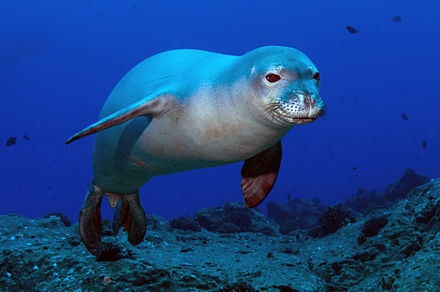The National Oceanic and Atmospheric Administration’s (NOAA) National Marine Fisheries Service division announced on Tuesday that they have drafted a management plan for the endangered Hawaiian monk seal population. The Hawaiian monk seal is one of two remaining monk seal families, the other being the Mediterranean monk seal.
Endemic to Hawaii, the Hawaiian monk seal is one of the rarest marine mammals in the world. According to the NOAA website, the advent of modern surveying has exacerbated the endangered nature of the seal, which was hunted to near extinction at the turn of the twentieth century. ABC News reports that there are a total of 1,100 Hawaiian monk seals in total, and that the majority of them inhabit those Northwestern Hawaiian Islands which are uninhabited by human beings.
Rachel Sprague, the Hawaiian Monk Seal Recovery Coordinator working with NOAA, spoke on the continued decline of the monk seal population in an interview with The Associated Press. “If climate change or sea level rise or infectious disease did get into the population, they could really be catastrophic for such a small population,” stated Sprague. “Rather than thinking about trying to really do a lot of active interventions, we’re more trying to set up a situation for the future to support the monk seal population growing to a level where they could be considered recovered.”
One of the biggest challenges that NOAA faces when it comes to making a plan for protecting the monk seal population is human related impact. There is a possibility that disease can be spread to the seals by humans or their pets, and there has been cases in which seals have become tangled in fishing nets, and even injured by fishing hooks.
The potential extinction of the Hawaiian monk seal can pose any number of problems to the ecosystem, as they are top predators, much like sharks. Sprague states that it is hard to predict the exact dangers of them going extinct, as everything is connected. “We really don’t know enough about what’s going to be the one that we pull out that will make the whole thing collapse,” asserted Sprague. “Things just get more and more unstable the more species we lose.”
We really don’t know enough about what’s going to be the one that we pull out that will make the whole thing collapse (…) Things just get more and more unstable the more species we lose.
























